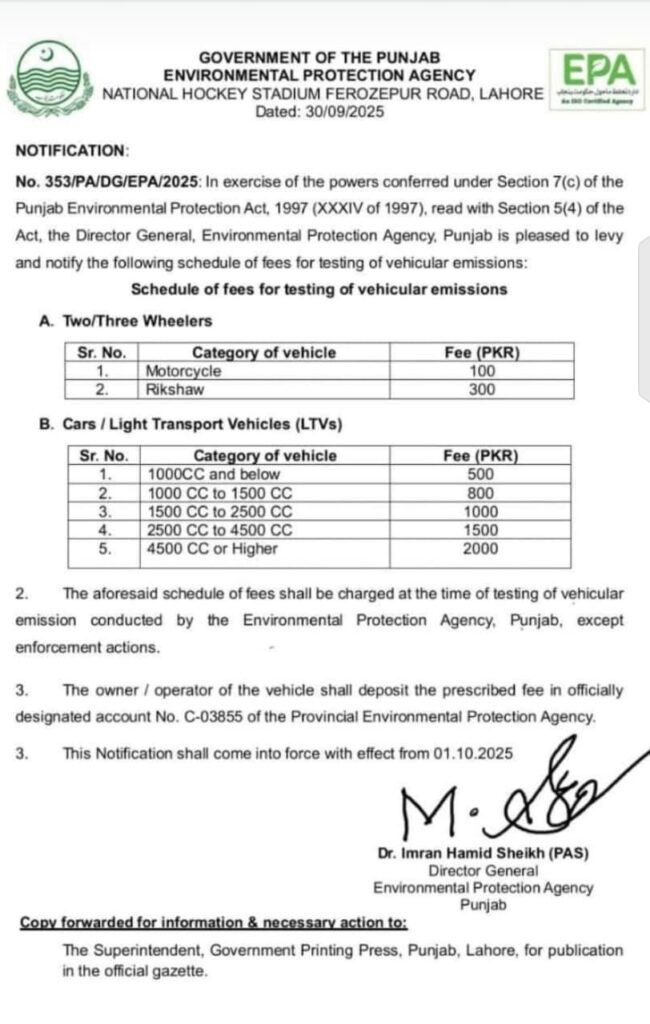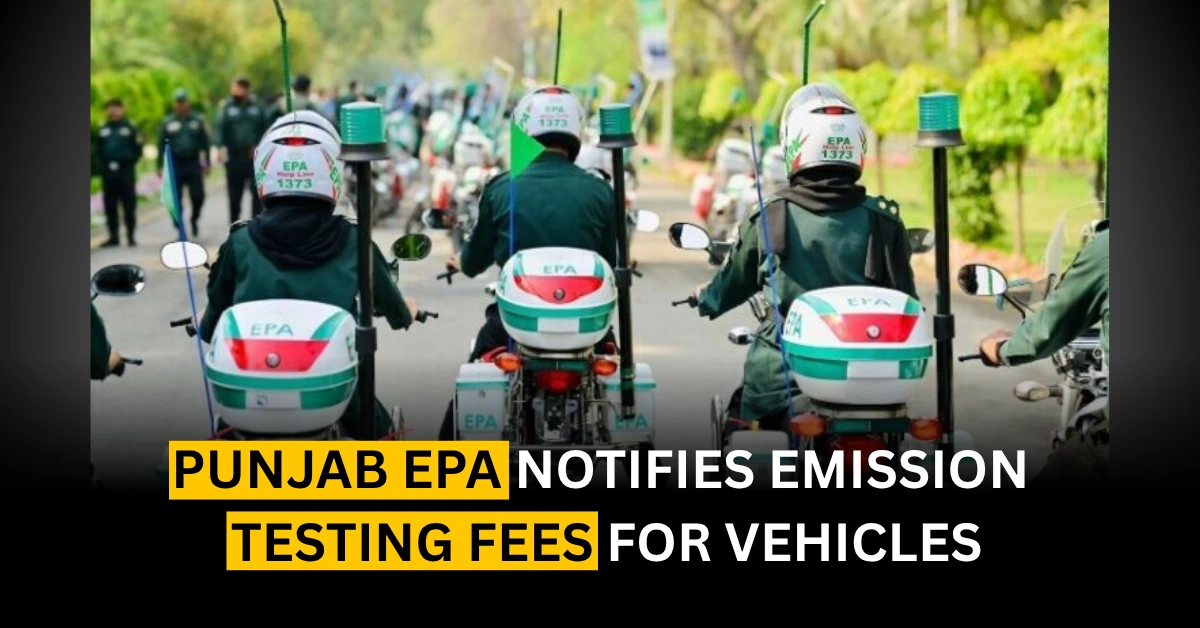The Punjab EPA (Environmental Protection Agency) has issued Notification No. 353/PA/DG/EPA/2025, announcing new emission testing fees for vehicles across the province. This notification, released on September 30, 2025, officially took effect from October 1, 2025. The move by Punjab EPA is aimed at regulating pollution levels, ensuring compliance with emission standards, and providing a clear fee schedule for all categories of vehicles.

Purpose of Emission Testing
With the rapid increase in traffic, air pollution in Punjab has become a pressing issue. Regular emission testing ensures that vehicle owners keep their cars, motorcycles, and rickshaws within permissible environmental limits. By enforcing a standardized fee schedule, the Punjab EPA is making the process more transparent and effective, while reminding the public about the importance of compliance.
Also Read
40 More Electric Buses Enter Service in Lahore with Phase-II Rollout
Fee Schedule for Emission Testing
The Punjab EPA has categorized vehicles by type and engine cc capacity. The new emission testing fees are as follows:
| Vehicle Type | Category / Engine Capacity | Fee (PKR) |
|---|---|---|
| Two/Three Wheelers | Motorcycle | 100 |
| Rickshaw | 300 | |
| Cars / Light Transport Vehicles (LTVs) | 1000 CC and below | 500 |
| 1000 CC to 1500 CC | 800 | |
| 1500 CC to 2500 CC | 1,000 | |
| 2500 CC to 4500 CC | 1,500 | |
| Above 4500 CC | 2,000 |
Deposit and Payment Method
As per the notification, vehicle owners must pay the prescribed emission testing fees at the time of testing. The payment should be deposited into the official Provincial EPA account (Account No. C-03855). By ensuring direct deposits, the Punjab EPA aims to make revenue collection transparent and aligned with its environmental protection framework.
Join our WhatsApp channel. For more related news,
Implementation Details
The new rules will be enforced across Punjab, and all categories of vehicles — including two/three wheelers, motorcycles, rickshaws, and cars/LTVs — must undergo testing. The Punjab EPA has clarified that non-compliance may result in penalties, while regular testing will promote road safety and reduce harmful emissions.



Join The Discussion